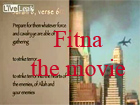« al-Qaeda And The Palestinians | Main | Iranian police tortures youth in the streets »
May 21, 2007
The Media and Iraq
The Christian Science Monitor (hat tip - Wizbang) has an interesting interview with Bill Roggio about how the media is reporting Iraq and ways that al Qaeda and others manipulate the media to get the coverage they desire. Central to the take home message is the fact that whether the media recognize it or not and whether they like it or not, the media is a part of the battlefield and what they report, how they report it, the context they use, and when they report it - all affect the war and who wins it:
Chinni: I know you weren't particularly pleased with the media's coverage of Iraq as of December. Has it gotten better, worse, or more accurate since then?More here ...Roggio: In some respects the media coverage in Iraq has improved, such as the recent spate of reporting on the remarkable success in suppressing Al Qaeda and the insurgency in Anbar Province. But as a whole, the coverage in Iraq lacks context, and reporters as a whole display a lack of knowledge of counterinsurgency and the role the media plays in an insurgency's information campaign.
For instance, the success in Anbar was immediately negated when Al Qaeda conducted a suicide attack in Ramadi in early May, and the Associated Press "reported" that the attack dealt "a blow to recent U.S. success in reclaiming the Sunni city from insurgents." Al Qaeda conducted the attack to generate such an opening paragraph. This type of reporting is all too common in Iraq.
In the media reporting, the Baghdad Security Plan (the troop surge) was practically declared a failure before it even began. Al Qaeda and insurgent groups have clearly reduced attacks in the capital (even though the full complement of forces are yet to arrive, and much of Baghdad has yet to be cleared) and increased attacks in the provinces. Yet these attacks are generally lumped together. The goal posts have been shifted, and Al Qaeda achieves the desired effect - Iraq is a failure.
... Roggio: The Ramadi template has played out numerous times in Iraq. After a big operation in Tal Afar, the situation improved dramatically in the northern city. Tal Afar was declared a model of success by President Bush. Al Qaeda decided to pull off an occasional suicide attack in the city, so it could hang Tal Afar around the president's neck like an albatross. When attacks occur, you read, "A suicide attack killed X and wounded Y in Tal Afar, a city President Bush declared a model of success in Iraq...."
Does this mean Ramadi or Tal Afar are perfectly secure cities? No. But progress there has been dramatic, and there are only reports if something goes wrong. That is exactly what Al Qaeda in Iraq wishes to achieve.
Like it or not, the media is a part of the battlefield. Why do the media refuse to recognize their role as participants - even if passive - in this war?
Posted by Richard at May 21, 2007 11:07 PM


